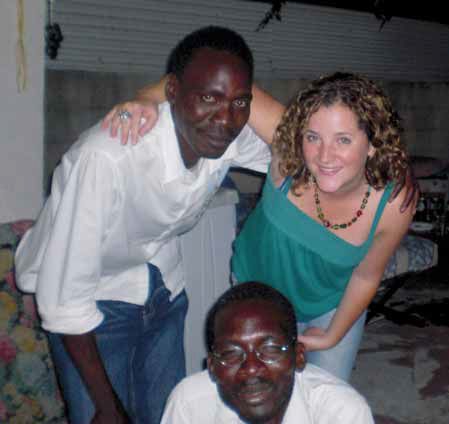
Naomi Magnus, Project Coordinator of Hotline For Migrant Workers, with two refugees from Darfur, Adam and Ahmed.
I graduated from university in London in the summer of 2005 and decided to pander to a desire to continue learning for learning's sake and chose to live in Israel for an extended period of time – to explore my Jewish identity and my relationship with Israel itself. The first six months of my stay were in Jerusalem where I studied Jewish texts in the Conservative Yeshiva and this period ignited my interest and passion for progressive Judaism. The realization that I could combine my modern day morality with my Jewish heritage excited and inspired me. In addition I developed an increased understanding of what it means to live in Israel. Troubled by many of the present day injustices in the Jewish state I felt responsible as a Jew to help to make Israel a country I could be proud of.
I returned home for a year to run the Zionist Masorti Youth Movement, Noam, in which I had grown up and which runs informal Jewish educational activities and residential camps. This period only strengthened my desire to return to Israel to see if I could begin to create a real life for myself and contribute what I could to creating 'a model society', based on what I would term as progressive Zionism.
In September 2007 I came to Tel Aviv on an internship program as a fundraiser and project manager for the Hotline for Migrant Workers which works to promote the rights of undocumented migrant workers and refugees and eliminate the trafficking of persons within Israel. It was through 'Hotline' that I came into contact with the newly established organization 'Sons of Darfur' and found myself thrown into the heart of one of Israel's hottest issues – the recent influx of African refugees.
Refugees from Darfur have been fleeing to the big cities of their neighboring countries such as Chad and Egypt. They seek safety, but in Egypt, for example, their situation is dire. They lack any basic rights, are on the verge of starvation and suffer from frequent harassment by the authorities. During a protest in December 2005 twenty seven of them were killed by the police and many others were injured, detained and deported back to Sudan. Consequently, out of desperation, there are those who flee to Israel seeking refuge. Recent efforts by non-governmental organizations have led to the release of refugees from the detention centers in which they were originally placed. There are currently nine hundred Darfurian refugees living in Israel; the Israeli government has granted six hundred of them temporary residency status which allows them to gain employment, education and health care and above all makes them feel accepted.
'Sons of Darfur' was founded by a core group of some of the first fifty Darfurian refugees to enter Israel. Whilst still held in detention in Israeli prisons by the authorities they envisaged the creation of a self-help and self-advocacy association in the belief that they personally could best understand and address the needs of their own people. 'Hotline' assisted the new organization by giving them a room in the Hotline offices to use as an office of their own. I met the director of the organization, Yassin, and was asked if I could help and work with him. The first task I faced was to assist with the composition of the initial grant proposal from "Sons of Darfur" for the New Israel Fund. Since that day, eight months ago, the people of the Darfurian community have become my friends and my cause.
Yassin was an architect in Sudan and hopes to be able to continue with this profession in Israel. However, he now has his hands full trying to serve the community in Israel. His family was wiped out in an attack on his village by the Janjaweed, and Yassin arrived in Israel alone. He is 30 years old, only five years my senior, and yet I feel he is more a peer of my 83 year old great aunt who escaped from Germany on the Kinder Transport with one brother, the remainder of her family perishing in Auschwitz. I am constantly amazed by his strength, his unmoving commitment to his community and his optimism.
In addition to daily problems with which I assist him, we also organize the running of awareness raising events, the largest of which was on Global Day for Darfur in April. Amongst those I am helping with their English, on a voluntary basis, are a family which fled from Egypt into Israel in the hope of education for their children who are now 9 and 12 years of age and extremely bright. They insist on feeding me and we laugh together at my Hebrew and their English. Unfortunately it will be December before they will be able get placed in a school. This saddens me and I feel so helpless having no new developments to report when I visit them.
I am not a political activist, I am not shouting out to open our borders but I do not believe we should turn these people away. I see both sides of this contentious issue. I have come to realize that I cannot sit back and do nothing when there is a humanitarian crisis only a few blocks from where I live. When asked what I do, I have been faced with antagonism from people with right-wing sentiments but in my heart I remember the words, "Yesterday us, now them". I simply believe whole-heartedly in Israel being a country that behaves with compassion and understanding for humanity, a country to be proud of.
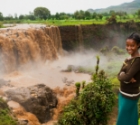 A “Virtual” tour of Ethiopia
A “Virtual” tour of Ethiopia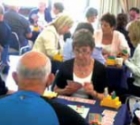 ESRA Herzliya’s Annual Bridge Morning
ESRA Herzliya’s Annual Bridge Morning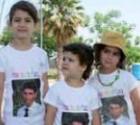 Walking for Benji
Walking for Benji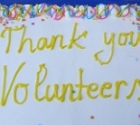 A new website in English - on Volunteering - Launched in Israel
A new website in English - on Volunteering - Launched in Israel Help Needed for Abused Horses and Donkeys
Help Needed for Abused Horses and Donkeys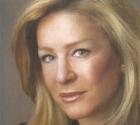 Heather's Heseg
Heather's Heseg